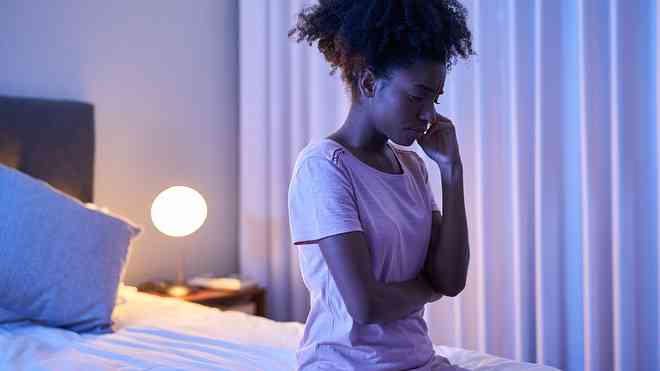Struggling with insomnia? These could be the reasons
Many people nowadays tend to suffer from insomnia, a common sleep disorder that makes it hard to fall asleep. It also manifests as not being able to stay asleep or


Many people nowadays tend to suffer from insomnia, a common sleep disorder that makes it hard to fall asleep. It also manifests as not being able to stay asleep or causes one to wake up early and not be able to fall asleep.
Other symptoms include:
Not feeling well-rested after a night’s sleep
Difficulty paying attention or remembering
Increased errors or accidents
Ongoing worries about sleep
Daytime tiredness or sleepiness
Irritability, depression or anxiety
While sleeping time varies for many people, adults usually need about 7 to 8 hours of sleep. This enables the body to function properly by keeping your energy levels up. It also improves your quality of life and performance.
For some people it could be acute while others suffer from chronic insomnia which could either be a primary problem or symptom of another medical issue.
In the event you find that you cannot fall asleep easily, it could be due to:
Eating too much before bedtime
This can cause discomfort and keep you up at night as it activates the digestive system. Foods can also cause acid reflux and heartburn which makes it hard to sleep. If you must eat, take a light snack instead. Additionally, drinking a lot of fluids before bed may require you to wake up frequently during the night which disrupts sleep.
Taking stimulants before bedtime
Drinking alcohol and smoking are also key suspects when it comes to disrupted sleeping patterns. Coffee has also known to be culprit due to the caffeine. If you must take coffee, limit it to before lunch times to give time for the caffeine to wear off.
Disruptive sleeping environment
Nowadays, distracting things have found their way into the bedroom. For some it is the TV nad for majority, it is the smartphone. Smartphones emit a blue light that suppresses the sleep-inducing hormone in our bodies. Learn to put down your smartphone at least an hour before bedtime.
Stress and anxiety
If you suffer from stress and anxiety, then it can be hard to fall asleep as your mind is still buzzing about your work, school or coronavirus. Stressful life events can also trigger your anxiety making it hard to drift off. Sleep experts suggests trying out some relaxation therapies to help you drift to sleep more easily.
Irregular sleep hours
Poor sleeping patterns only serve to disrupt the body clock which consequently affects when you are able to fall asleep. Try to wake up and sleep at the same time every day. This signals a routine in your brain which enables you to sleep better when it’s bedtime.
Medication
Sleep can also be interrupted by your medication. For instance, some medication for blood pressure may cause you to urinate more often which ultimately disrupts your sleep.
Sleep-related disorders
Conditions like sleep apnea are sometimes responsible for your insomnia. Sleep apnea causes one to stop breathing periodically throughout the night, interrupting your sleep. For some, Restless legs syndrome causes unpleasant sensations in the legs and an almost irresistible desire to move them, which may prevent you from falling asleep. Remember, insomnia could a symptom or the actual problem.
Read how you can tackle insomnia here.





